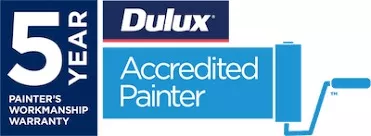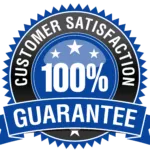COMMERCIAL & INDUSTRIAL EPOXY FLOORING
COMMERCIAL & INDUSTRIAL EPOXY FLOORING
When it comes to the sort of material you use for your industrial and commercial flooring, safety and security should be your top priority; making the proper choice can make all the difference. This is where industrial epoxy flooring enters the picture. Commercial epoxy flooring is essential for creating a high-performing, attractive, and long-lasting floor space. Epoxy flooring can last anywhere between 6 and 10 years, depending on the amount of use they receive over time. Some epoxy flooring alternatives in Sydney that will meet your demands and give protection for your concrete floor are listed below.
Epoxy flooring, often known as epoxy resin, is a type of flooring that is put over an existing concrete slab. Used to create a more robust, longer-lasting floor coating alternative that protects against the weather in commercial and industrial settings. Epoxy flooring are utilised in high-traffic and forklift areas to protect against acids, oils, and solvents. This system comes with a variety of alternatives that can be used in a variety of commercial and industrial settings where a long-lasting, slip-resistant solution is needed.
POLYURETHANE CEMENT FLOORS
Florux Epoxy Flooring’s polyurethane cement flooring is highly resistant, robust, resilient, and non-toxic, making it ideal for commercial and industrial applications.
We’re experts at preparing and applying heavy-duty, non-slip, industrial-grade functional floor coating systems. We recognise that usefulness, as well as longevity, is important to our customers, which is why we only instal floor coating systems that are suitable for their intended use. Our team of specialists will do a thorough onsite evaluation and help and advice on the best solution for your flooring issues.
The polyurethane cement flooring boasts several critical characteristics, including chemical resistance and slip resistance, making it the ideal flooring solution for high traffic areas and locations where safety is paramount. It is preferred in processing facilities, warehouses, and storage rooms, among other places. It’s a trowel-applied self-leveling and self-smoothing compound that results in a highly smooth and visually appealing surface.
Concrete polyurethane floors can be customised to match each customer’s unique wants and conditions. We provide a variety of services and are confident that we can fulfil your needs in both residential and commercial settings. Contact one of our knowledgeable flooring specialists now to learn more!
Polyurethane Cement’s Advantages
Easy to clean
- Excellent resistance to chemicals and abrasions
- Odourless so non tainting to food and beverages
- Can withstand high traffic and vehicles
- Anti-Slip Floor
- Seamless look
Give us a call today and get a free quote!
Professional Polyurethane Cement Flooring Service
We also apply coving around the perimeter of the floor after installation to ensure a consistent look. It also ensures that the floor will survive longer and will be less likely to degrade and become a hazard. Polyurethane Cement is a versatile material that may be used in a variety of applications. It’s a food-safe floor that’s ideal for food prep rooms, manufacturing operations, and commercial kitchens. Because of how it’s built, it can tolerate a wide range of temperatures, making it ideal for use in cool rooms and freezers. Manufacturing businesses, warehouses, and chemical facilities can all benefit from it.
Why is polyurethane cement the best choice for commercial kitchen flooring?
Kitchens are often well-used places, and their floors, especially in a business setting, are no exception. They’ll encounter a variety of contaminants, and they’ll almost certainly have to carry the weight of big equipment while also dealing with high traffic. They must be exceptionally long-lasting, durable, and resistant. If you don’t buy the appropriate commercial kitchen flooring, you’ll have to deal with anything from cracking and chipping to flaking and more in the future. Even if it’s more expensive at first, your commercial kitchen flooring needs to be suited for your operations from the start; it’s preferable to spend now rather than deal with the inconvenience and added cost of upgrading your commercial kitchen flooring later. If you’re not sure which flooring system is appropriate for your commercial kitchen flooring, keep reading; you could just find the solution.
What is Polyurethane Cement, and how does it work?
A polyurethane cement product that is used as a top layer on concrete floors that are subjected to harsh service conditions. It’s advised for usage in situations where high temperatures are frequently encountered, as well as where highest acid resistance (including organic acid) is necessary. It’s resistant to phosphoric acid and sanitising agents like peroxyacetic acid solutions, as well as food acids like phosphoric acid. A solventless polyurethane and a cementitious quartz filler blend are used. The commercial flooring product is often applied as a broadcast topping with a variety of anti-slip treatments and sealed afterwards. It can also be used as a smooth, flawless self-leveling topping in a single layer.
What makes Polyurethane Cement the best commercial kitchen flooring option?
- Durability
Polyurethane cement is tough, long-lasting, and resistant to abrasion and impact. The mix of speciality resins and high-quality blended fillers ensures strength, durability, and endurance; it’s tough enough to withstand even the busiest industrial kitchen.
- Slip resistance
A successful business requires a safe working environment. Meeting safety regulations and maintaining the safety of those working in the space necessitates the use of a highly slip resistant commercial kitchen flooring system. To maintain your staff’s safety daily, you’ll need a well-designed commercial kitchen flooring system to reduce or eliminate slips, trips, and falls.
- Chemically resistant
It’s chemically resistant to acids, caustics, fats, and cleaning solutions, all of which it’ll come into touch with daily in a commercial kitchen. Your flooring surface will not endure if it is not intended to handle these types of pollutants.
- Thermal shock resistance
Commercial kitchen floors are subjected to high temperature changes, necessitating the use of a specially engineered flooring system. Polyurethane cement can tolerate harsh conditions and is extremely resistant to high temperatures and thermal stress, such as frequent discharges of boiling water and steam, which are common in commercial kitchens.
- Low VOC application
The flooring system is solvent-free and has a low fragrance, so it won’t harm food or cause problems with public ventilation.
- Surface finish that is both hygienic and safe
Especially in a commercial kitchen, floor finishes must be clean and usable. Strict food safety regulations guarantee that floors do not harbour potentially harmful bacteria; this is critical in a variety of industries, including commercial kitchens. The system includes the industry-leading antimicrobial Ultra-Fresh technology, which has been demonstrated to give effective resistance to bacteria, fungi, mould, and mildew.
- Fast installation
Polyurethane cement may be swiftly and easily laid, ensuring that your operations are not disrupted for an extended length of time. Polyurethane cement Can be used on concrete that is 7 days old. Your bottom line will be impacted if your commercial kitchen is not operational. The system is moisture resistant and may be applied to a somewhat damp surface. It also comes with a chemical accelerator for a quick cure period, even at low temperatures.
- Adaptability
Polyurethane cement is available in a variety of colours. It’s a visually diverse flooring system that’ll appeal to a wide range of tastes. If you haven’t thought about a polyurethane floor for your commercial kitchen flooring, you should. It is quickly becoming the preferred flooring system for commercial kitchens all over the world.









